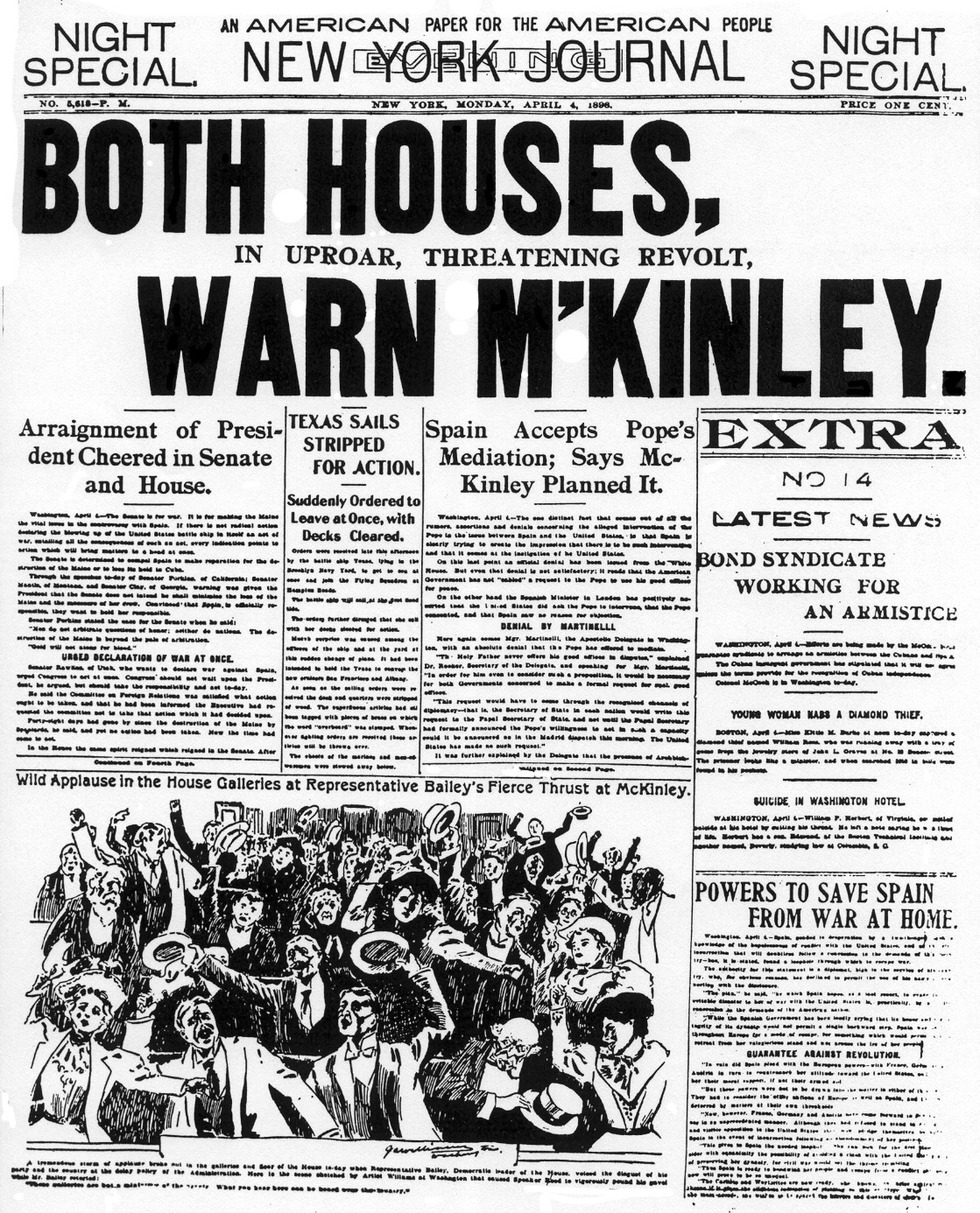If you’ve been on the internet at all in the past few months, you’ve undoubtedly noticed the web-wide panic over this fake news epidemic. Social media is overflowing with countless articles and infographics walking readers through how to critically evaluate sources and become expert fact checkers themselves. While I am in total support of encouraging smart and responsible civic engagement, I also believe that there are some important facts that should be addressed in regards to media bias and responsible media consumption. Primarily, the perception that "fake news" is a new and frightening invention of the digital age.
Many a disgruntled grandparent loves to blame the influx of fake news on the internet and social media. However in reality, fake news has existed just as long as actual news. In fact, before the age of the internet, governments were under no obligation to be transparent and it didn’t matter whether news was truthful or not, because so little people had access to it. It wasn’t necessarily that news was more reliable back in the day, but that there were fewer news outlets, and thus less opportunities for contradicting stories. In fact, it wasn’t until around the 1800s, when American news publications began to exist in great abundance, that information was widely distributed enough, and through a variety of different sources, that the “truth” became a subject of debate.
With more and more news outlets, not only was there room for debate, but also there was more competition in the industry, making it harder for newspapers to make a profit with facts alone. Thus began the practice of Yellow Journalism (aka: fake news). Coined in the 1890s, the term was used to describe the type of reporting (sometimes written in yellow ink) that fueled the circulation war between William Randolph Hurst’s The New York Journal and Joseph Pulitzer’s The New York World.
Historian and journalist Frank Luther Mott describes Yellow Journalism as consisting of five major characteristics:
- Scare headlines in huge print about minor news
- Articles overflowing with pictures
- Use of fake interviews, pseudoscience, and/or vague unnamed sources
- Emphasis on full color Sunday supplements
- Dramatic sympathy for the “Underdog” against “the system”
(Cue exasperated look directly into camera) Any of this sound familiar?
And let’s not forget that the men who popularized this style of journalism are in all respects, considered American icons in the realm of journalism. Joseph Pulitzer (of the Pulitzer Prize) went on to become a national figure of the Democratic party and eventually elected congressmen of New York. He also founded the first American school for journalism. William Randolph Hearst was also twice elected to the U.S House of Representatives.
So what’s the point of all this? Well, these men, despite their (to say the least) ethically dubious reporting, were still extremely influential in American politics and journalism. The danger of "fake news" is not, (nor has ever been) exclusive to small insignificant tabloids or online clickbait sites. Bias is everywhere. There is no magically reliable or absolutely objective source of news. The fact of the matter is, major media outlets rely on ratings and views to make money. And it’s hell of a lot easier to secure ratings and page views with blanket generalizations, accusatory statements, and outlandish claims. In short: the news media profits off of political polarization.
All the internet really does to change the situation is speed the process up. However, with (relatively) equal access to information, now anyone can be a journalist (to a certain extent), putting more pressure on the government, popular media, and corporations to be more truthful and transparent (Well, assuming people care enough to put in the effort to do their own research and speak out against misinformation). That’s the crux of freedom of speech and freedom of the press. Anyone can say virtually anything (with the exception of hate speech and inciting violence of course). So, in the midst of this mass hysteria over fake news, it’s important to take lessons from history and remember that this is not such a new problem. Democracy only works if people are engaged and educated. This means approaching all new information with a touch of skepticism, even in the cases when we’d rather believe it.























